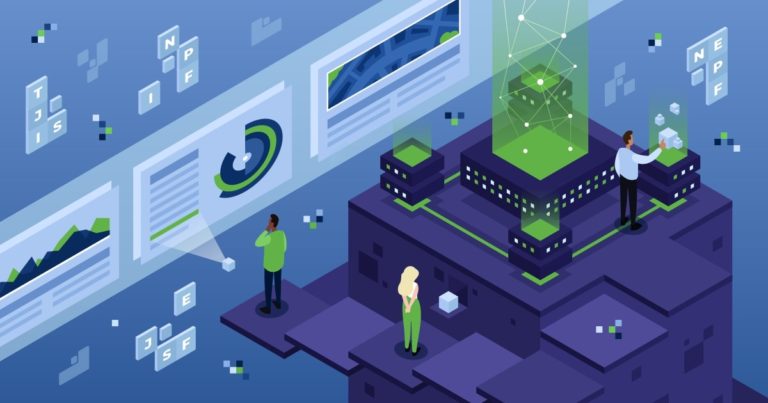Best Data Science Careers for MBTI Personality Type

For the past several years, individuals and corporations alike have been using the Myers Briggs Indicator Test to determine personalities and what type of career is most suitable for each personality. The however suggestive test uses a list of questions to identify people’s 4-letter MBTI types and finishes by deciding their specific tendencies or preferences. Although this is not the only test used for deciding jobs for personality types, it is the most widely believed and used. So widely believed that about 80% of the Fortune 500 companies use it to decide who to employ. Such an important test then becomes very useful when trying to choose a career in Data Science.
What is MBTI?
MBTI which stands for Myers Briggs Indicator Test is a self-reported testing system that was developed during World War II by Isabel Briggs Myers and her mother, Katharine Briggs. The system took the 8 personality theories originally developed by Carl Jung and built that into something unique and profound.
Now, widely acclaimed and commonly used all over the world, MBTI is popular for 3 solid reasons. First, it is popular because of people’s propensity to know and understand themselves better. It is generally believed that understanding oneself is crucial to picking the best way to live one’s life (including engaging in the best career) as well as living an all-round fulfilled life. Secondly, MBTI popularity stems from the fact that it is rooted in both Psychology and Science: the two areas that have so far held the most credible explanation to life and humanity. Lastly, MBTI is popular because it has been around for so long. Its well thought out concepts and personality descriptions have been tested over time and everyone who has ever taken the test later find it easy to both understand themselves better and pick the most suitable career. This general belief makes it possible for anyone to take the test without doubting its results.
As an individual seeking to pick the most suitable career in Data Science, therefore, it makes absolute sense to take the test to be able to ascertain where one is most likely to fit.
The test consists of about 93 questions which an individual has to answer honestly in about 25 minutes. The questions usually include how an individual acts most of the time under different conditions. After answering the questions (which have no wrong or correct answers), the individual can then be safely classified into one of the 16 personalities.
What Are the MBTI Personality Types?
We believe that people fall into one of the 16 Myers Briggs types. There are originally 4 categories with extreme preferences:
Category 1: Extroversion (E) vs Introversion (I)
Category 2: Sensing (S) vs Intuitive (N)
Category 3: Feeling (F) vs Thinking (T)
Category 4: Judging (J) vs Perceiving (P)
By favoring one range or preference over the other in each category, an individual can then have a personality type denoted by the first letter of each preference from all four categories. For instance, if you ran a Myers-Briggs personality type and career choice test and got the result ISTP, we can interpret it to mean that your preferences are Introversion, Sensing, Thinking, and Perceiving.
Since everyone predominately picks one preference over the other, the dichotomy, therefore, results in 16 different personality types.
Distinct Features of MBTI Types
All Myers Briggs personalities are distinct with each having its own unique features. Let us consider them one by one.
- ENTJ: People with this personality type are generally called Commanders as they naturally possess several leadership skills. They can be very efficient and organized. Logical, analytical with excellent planning skills.
- ENFJ: They are usually the protagonist with great interest in people. They are also highly energetic, diplomatic and articulate. They succeed best in instances where they can be both logical and expressive.
- ENTP: These are thought-provoking individuals who have a smack for fresh challenges. They enjoy being creative and because they like risky roles in which they can demonstrate persistence, we usually find them in the entrepreneurial space.
- ENFP: These are the campaigners who never fail to see opportunities even in the weirdest places. They are confident and curious and fit easily in whatever role requires them to communicate well and be at alert.
- ESTJ: People with this personality type usually do well as executives because they are great at making real and practical decisions quickly. You will find them doing a great job as leaders.
- ESTP: People with this type of personality are excitement lovers who cannot be stopped by mere crisis. They come with a handful of resourcefulness and like to do anything that involves risks. They are, therefore, born entrepreneurs.
- ESFJ: These are those who love to help others and are therefore found in places and careers that provide them with the opportunity to do so.
- ESFP: These are cheerful and very playful people who generally enjoy the company of those who exhibit common sense. They like to entertain others through conversing and interacting with them.
- INTJ: These are usually perfectionists who like to see things always go their way. Even though they are highly creative, they like to function in non-social roles where they can comfortably do their theoretical thinking.
- INFJ: These are people who are guided by concrete personal integrity and principles. They find it difficult to communicate their thoughts to a larger group but they are very thoughtful and creative.
- INTP: The people with this personality enjoy to be in careers that allow for precision and theory. They are creative and enjoy using logic to solve problems on their own.
- INFP: These individuals usually have deep personal values that tend to drive everything they do. They are compassionate and highly sensitive and adapt easily to whatever role that requires those qualities.
- ISTJ: These are very reliable people who enjoy working hard and showing commitments and dedication. They also demonstrate a high sense of responsibility.
- ISTP: People with this type of personality are generally straightforward and honest people. Their easy nature allows them to do well in whatever Myer Briggs career that requires them to learn and use various tools.
- ISFJ: People with this personality are best known for their determination and modesty. They can therefore serve and help others without necessarily being leaders.
- ISFP: These people tend to be very sympathetic to others. They are sensitive, warm and attentive to others and like to choose a Myers Brigg career that allows them to add tangible values to people’s lives.
MBTI Personalities with Compatible Data Science Careers
| MBTI Personalities | MBTI Personalities | MBTI Personalities | MBTI Personalities |
| ENTJ: Project Manager Software Architect | ENFJ: Web Designer Web Developer | ENTP: UX Designer Graphic Designer | ENFP: UX Researcher Front-end Developer Video Game Developer |
| ESTJ: Software Analyst Technical Program Manager Database Administrator | ESTP: Web Developer Data Analyst UX Researcher | ESFJ: Machine Learning Engineer Data Analyst Support Specialist | ESFP: Front-end Developer Video Game Developer |
| INTJ: System Analyst Software Engineer Project Manager | INFJ: UX Designer Data Scientist | INTP: Computer Programmer Information Security Analyst | INFP: Software Engineer Graphic Designer UX Designer Front-end Developer |
| ISTJ: Data Analyst Computer Engineer Computer Programmer | ISTP: Software Engineer Systems Support Specialist | ISFJ: Software Engineer Data Scientist | ISFP: Web Developer UX Designer Animator |
Why It Is Important to Do Your Myers Briggs Career Assessment
Usually, people in Data Science and Machine Learning fields take the Myers-Briggs career test because it helps them decide which career in Data Science to get into. The results from a Myer Briggs career test may be suggestive and speculative but they are important for the following reasons:
- To Provide a General Yet Better Understanding of Oneself
Having a holistic understanding of why you perceive things in some kind of ways or why you act the way you do is very important for anyone seeking a career in Data Science. It is expected that once you have full knowledge of your personality traits, you will, in turn, be able to know, with some level of certainty, what you like and can stand. And this can be especially useful in picking just the right career.
- To Help You Make Better Decisions More Quickly
People who do not have a good understanding of their personality type may find themselves wasting a lot of energy and time engaging in the wrong careers. That is doing a job they are obviously failing at. However, once you discover your MBTI type and the MBTI career that goes with it, you can then easily decide what career to venture into with a high probability of being successful and happy at it.
- To Help You Know Your Strength and Weakness
For a Data Scientist, knowing one’s strength and weaknesses is a necessity. People generally possess different qualities that can be seen as strengths or weaknesses and different careers and jobs in Data Science also require different qualities. Hence knowing what your strengths and weaknesses are will greatly help you decide what MBTI careers to pursue.
How the MBTI Personality Affects Data Science?
MBTI personality types can affect Data Science teams just like any other team in any other field. However, the rate at which personality types affect a Data Science team may seem more obvious because of the way these teams are usually structured and the way they are expected to deliver results. Some of the ways personality types can affect Data Science include:
- Type of Leadership: For a Data Science team to succeed, it needs to have the right kind of leadership. And as we may already know, leadership traits come with certain personality types.
- Presence/Absence of Friction: Some personality types work really well together while others do not. We can then witness the absence or presence of clashes within a Data Science team when we put certain types of personalities side by side.
- Productivity and Performance: Personality types can influence what career a person gets into and succeeds at. Having a personality type in the wrong career or team can therefore affect the performance and productivity of the individual or team.
Conclusion
MBTI types are popular because they help guide people’s feet to the right career paths even in Data Science. The results may be suggestive but they help people make the right choices for Myer Briggs jobs and have been doing so for many years. It is therefore not surprising that over two million people are reported to take Myers Briggs career assessment yearly.
Subscribe to our email newsletter so you never miss out on quality contents like this. Also, share this with your friends if you think they are going to appreciate this knowledge.





